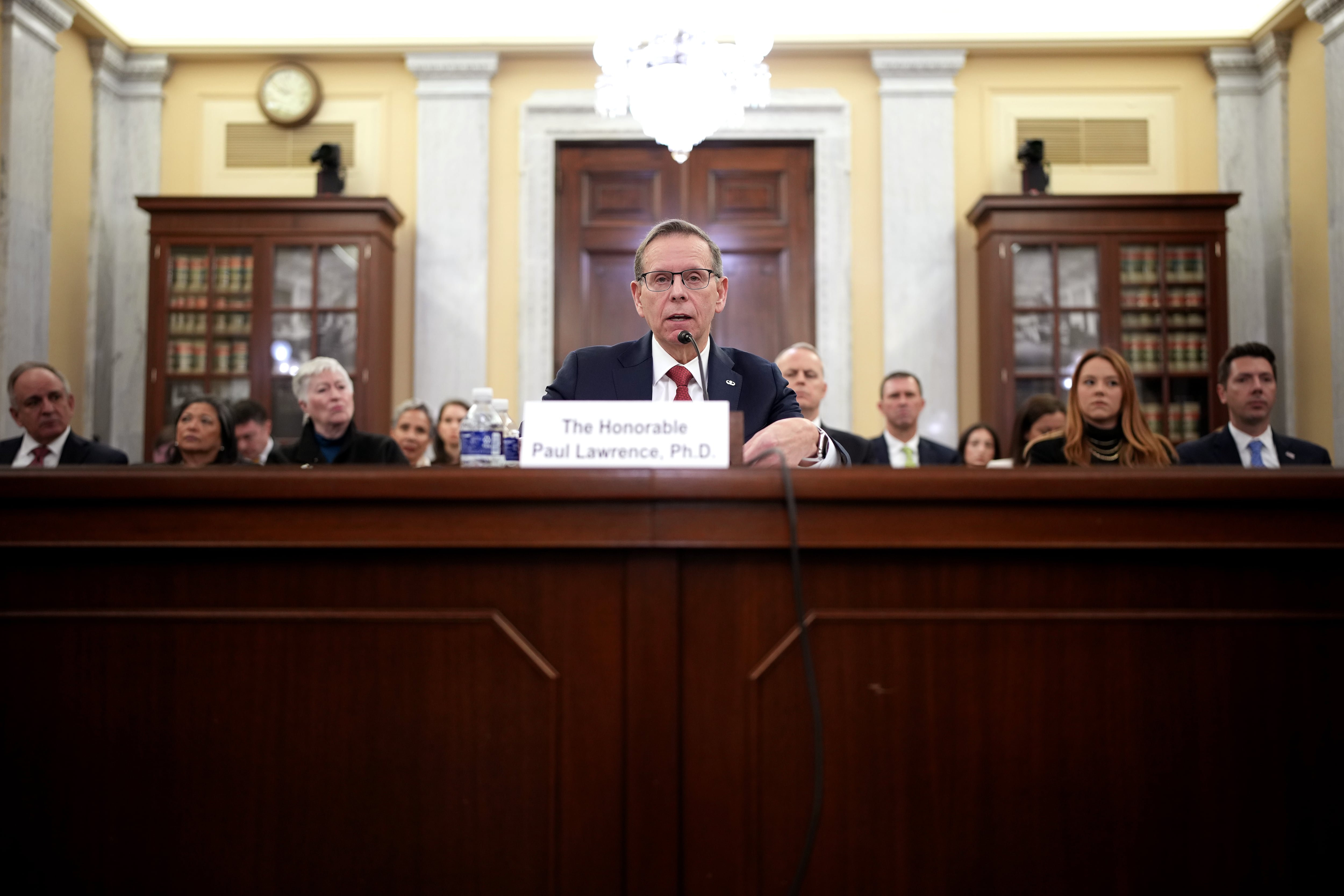Thomas Modly’s resignation as acting secretary of the Navy came less than one day after he told sailors aboard the aircraft carrier Theodore Roosevelt that their recently-fired commanding officer was either “too naïve or too stupid” to command.
Although he later apologized for his word choice to sailors aboard the coronavirus-stricken ship, the trip to Guam had already taken its toll on Modly’s professional career — and on the wallets of taxpayers.
According to estimates obtained by the Washington Post Wednesday, Modly’s last-minute tirade came with an airfare bill of $243,151.65.
The near quarter-million dollar tab included approximately 35 hours of round-trip flight time to Guam in a C-37B jet at a cost of almost $7,000 per hour, the Washington Post reported. The jet reportedly stopped to refuel in Hawaii on each leg of the trip.
The former acting Navy secretary flew to Guam to offer sailors an explanation for his hasty dismissal of Capt. Brett Crozier. The former commanding officer of the Roosevelt was fired following the leak a letter he wrote, which was obtained by the San Francisco Chronicle, pleading for U.S. intervention to stifle a COVID-19 outbreak on the 4,800-person ship.
“It was a betrayal," Modly told Roosevelt sailors, who just days earlier sent their commanding officer off amid rousing applause and chants of Crozier’s name as he departed the ship for the last time.
“And I can tell you one other thing: because he did that he put it in the public’s forum and it is now a big controversy in Washington, D.C. If he didn’t think, in my opinion, that this information wasn’t going to get out to the public, in this day and information age that we live in, then he was either A, too naïve or too stupid to be a commanding officer of a ship like this. The alternative is that he did this on purpose.”
Modly’s job was immediately called into question by numerous Democratic members of Congress including House Armed Services Committee Chairman Adam Smith, D-Wash., who accused Modly of taking a “tone-deaf approach more focused on personal ego.”
“His decision to relieve Captain Crozier was at best an overreaction to the extraordinary steps the Captain took to protect his crew,” Smith said.
“Acting Secretary Modly’s decision to address the sailors on the Roosevelt and personally attack Captain Crozier shows a tone-deaf approach more focused on personal ego than one of the calm, steady leadership we so desperately need in this crisis.”
Modly officially resigned less than 24 hours later, capping perhaps the most tumultuous public relations fiasco the sea service has ever encountered.
Defense Mark Esper was notified of Modly’s resignation Tuesday following a meeting between the two.
“He resigned on his own accord, putting the Navy and the Sailors above self so that the U.S.S. Theodore Roosevelt, and the Navy as an institution, can move forward,” Esper said in an official statement.
As of Wednesday Navy officials confirmed there are 286 cases of COVID-19 among the crew of the Theodore Roosevelt. The number of COVID-19 cases on the Roosevelt, of which Capt. Brett Crozier is one, represents more than half of the Navy’s 513 coronavirus cases.
Nearly 2,500 of the ship’s sailors have been moved ashore.
J.D. Simkins is the executive editor of Military Times and Defense News, and a Marine Corps veteran of the Iraq War.





